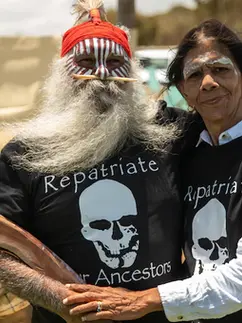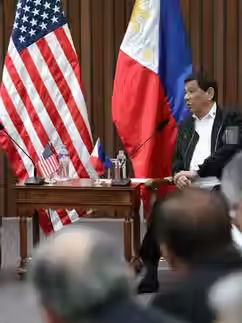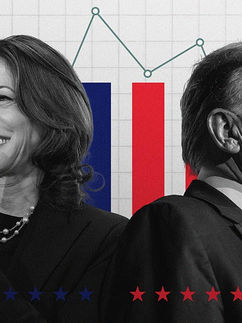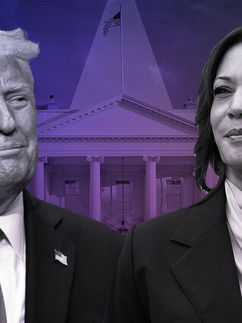Canada's Freedom Convoys
- Jack O'Donovan
- Jul 28, 2022
- 5 min read
Jack O'Donovan

The Convoys
On February 23, Canadian Prime Minister Justin Trudeau announced an end to the emergency powers granted to police to disperse the Freedom Convoy protests that had brought business in Ottawa and trade across the Canada-U.S. border to a standstill. The Prime Minister stated that “[t]he situation is no longer an emergency…the federal government will be ending the use of the emergencies act. We are confident that existing laws and bylaws are now sufficient to keep people safe.”
The granting of emergency powers, enabled through the 1998 Emergencies Act, marked a critical turn in the weeks-long battle between the Trudeau government and protestors over COVID-19 health regulations.
Sparked initially by the government’s vaccine mandate coming into force on January 15, the Freedom Convoys began as an expression of outrage by truckers whose exemption status had been revoked under the incoming mandate.
In August 2021, truckers crossing the Canada-United States border were deemed essential travellers and were thus exempt from COVID-19 vaccination requirements. On November 19, the Trudeau government flagged a change to this exemption, with the announcement that all employees and travellers in federally regulated transportation industries would be required to show proof of vaccination upon entry into Canada. This followed the U.S. Department of Homeland Security’s regulatory announcement on October 29 that non-citizens entering the United States would be required to show evidence of their full COVID-19 vaccination status, starting November 8. A grace period was granted until January 22, 2022 for essential travellers.
On January 28, convoys of truckers had begun to arrive in the nation’s capital of Ottawa. By February 7, key sites in Canada’s international supply chains and downtown Ottawa had been blockaded. Traffic over the Ambassador Bridge, across which a substantial amount of trade passes between Canada and the United States, was stopped. The streets surrounding the Canadian Parliament in Ottawa were also blockaded, with protesters establishing small camps. Similar protests were staged in Quebec City, Vancouver, Toronto and Halifax in apparent solidarity with the Freedom Convoys. This initial resistance to vaccine mandates on behalf of truckers morphed into a wider anti-government movement against all COVID-19 health regulations.
In response, municipal and state governments, as well as the federal government, took a number of actions. On February 6, Ottawa Mayor Jim Watson declared a state of emergency, requesting additional police from the Ontario and federal governments. On February 11, the Ontario government invoked emergency measures to remove border blockades and to charge non-compliant protestors with fines up to CAD 100,000. By late February 12, the blockade of the Ambassador Bridge had been removed. However, with downtown Ottawa still occupied by protestors, on February 14 Trudeau invoked the Emergencies Act 1998, granting police in Ottawa the power to establish ‘no-go zones’ and compel towing companies to remove trucks from the streets, alongside a raft of regulatory measures that enabled authorities to freeze the bank accounts of protestors.
The Cost for Canada
The impact of the Freedom Convoys on Canada’s economy has been costly. With the blockade of downtown Ottawa, businesses experienced a substantial drop in customers as people feared travelling into the city and many employees have lost wages as a result. In response, business owners, employees and residents of downtown Ottawa joined together to file a class-action lawsuit against the Freedom Convoy organisers totalling CAD 306 million.
Policing the protests has also proved expensive. The City of Ottawa expects total costs to exceed CAD 30 million – a “soft estimate” that is based on approximately CAD 800,000 per day and city service costs of CAD 200,000 per day. However, extra costs associated with bringing in more officers – such as accommodation, equipment and meals – will likely drive that higher. The City of Ottawa has spent over CAD 30 million in overtime, extra officers, equipment and meals to remove protestors and restore order. Officials have floated the idea of selling impounded trucks to recoup losses.
However, perhaps the highest cost has been incurred by industries reliant on trade across the Canada-United States border. The blockade of the Ambassador Bridge, for example, with over USD 360 million (CAD 460.9 million) of goods crossing it daily has been estimated to put the auto industry at a loss of nearly a billion dollars – approximately USD 141 million (CAD 180.5 million) over the 7-day period.
While the full impact on the Canadian economy is still being calculated, the political consequences of the Freedom Convoys – and the government's response to them – are somewhat clearer. Many Conservative MPs have come out against the Trudeau government’s vaccine mandates, with the former leader of the opposition, Andrew Scheer, having met with protestors as they embarked towards Ottawa in late January. Yet support for the protests within the Conservative party is divided. Comments made that there were “good people on both sides” of the protests, following evidence of the presence of far-right activists and neo-Nazis, prompted distancing from the Conservative Leader Candice Bergen. Her attempt to wedge Trudeau on the issue, saying to party officials that “we should make this a problem for the PM,” has also attracted criticism.
Trudeau’s invocation of the Emergencies Act, however, set a lightning rod upon the issue. Opposition MPs attacked the decision as an “unprecedented sledgehammer”, referencing the Act’s first use in Canadian history. Trudeau, meanwhile, accused the Conservative Party of standing with “people who wave swastikas,” raising the ire of those opposite with Jewish heritage. Yet whether the rising confrontation in the politics over the Convoys will amount to tangible electoral losses or gains remains to be seen. As Professor Jeff Berryman has argued, the tendency of Canada’s political parties to appeal to their base rather than the electorate runs the risk of alienating a majority of voters, further entrenching disproportionate representation of society in the federal parliament.
International Repercussions
Despite their ferocity, the protests have been unsuccessful in effecting any changes to health regulations. Cross-border vaccine mandates remain in both Canada and the United States. Indeed, the international protests that have been inspired by the Freedom Convoys appear to have been equally ineffective. Protestors travelling from Paris to Brussels were banned by governments in each city, with thousands of police deployed to confront them. Similar protests which took place in both New Zealand and Australia’s capital cities were also dispersed.
However, as a phenomenon themselves, the protests do demonstrate the unique challenge facing policymakers worldwide: how to convince citizens of the necessity of public health measures designed to ensure both their safety and long-term economic sustainability as the pandemic continues, especially when those measures infringe upon their freedoms and living standards.
Jack O'Donovan holds a Bachelor of Arts in History and International Studies from Federation University with First Class Honours in Politics from Deakin University. He currently works for the Victorian government, and has further study interests in the future of Australia's democracy - in particular, the sustainability of current asylum policies.

















Comments